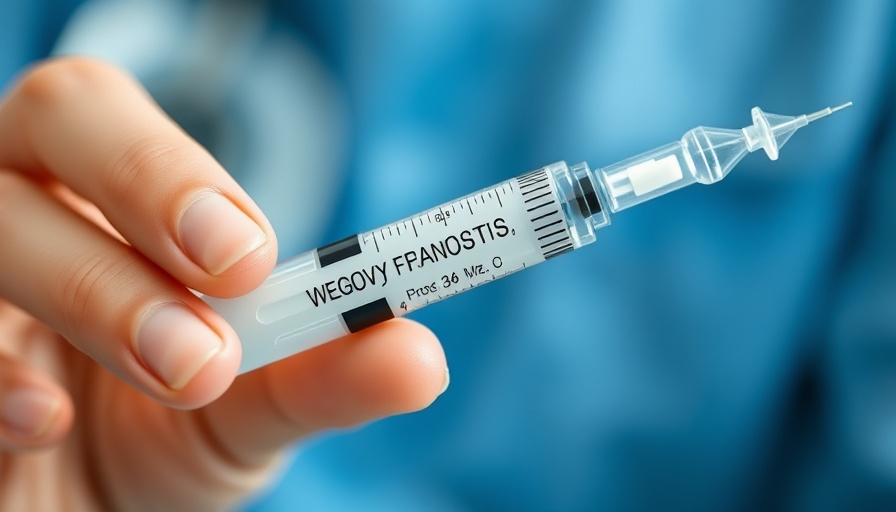
Understanding the Increasing Usage of Injectable Weight-Loss Drugs
Injectable weight-loss medications, particularly GLP-1 agonists like Ozempic and Wegovy, have gained immense popularity in recent years as effective treatments for obesity and diabetes management. This rise in usage is not without its risks, as the Oklahoma Poison Center has reported a significant increase in calls related to accidental overdoses of these medications.
The Surge in Poison Center Calls and Overdoses
Reports indicate that calls to poison centers regarding GLP-1 drugs have spiked drastically. In fact, the America’s Poison Centers documented nearly 3,000 calls concerning semaglutide, an active ingredient in these injectable drugs, representing a more than fifteen-fold increase since 2019. Many of these calls involved dosing errors, which can lead to severe health repercussions, including nausea and hospitalization. The drug has a long half-life, meaning it stays in the body for an extended period, making overdoses particularly concerning.
Why Are These Drugs Becoming So Popular?
Post-2022, when celebrities began promoting Ozempic for weight loss on social media, demand skyrocketed, contributing to its shortage and increasing the use of compounded versions of the medication. These compounded versions, often marketed as cheaper alternatives, have not undergone the same rigorous testing as their branded counterparts and can lead to dangerous dosing errors. Such confusion is especially prevalent given that compounded forms often come in multidose vials instead of the pre-filled pens designed for ease of use.
Demographic Factors Behind the Cold Calls
Interestingly, unlike typical poison control center incidents which often involve young children, calls regarding semaglutide are predominantly from adults aged 40 to 70. Misunderstandings regarding dosing instructions, especially among older adults, have led to disastrous outcomes such as individuals injecting ten times the recommended dosage. This raises an important question about education and support provided to patients prescribed these medications.
Common Signs of Overdose and What to Do
The Missouri Poison Center lists symptoms of semaglutide overdose, including dizziness, nausea, and hypoglycemia. If you suspect an overdose, the immediate action is to contact your poison control center. They can guide you through your specific case and determine whether you need medical assistance. It is essential that potential users of these drugs understand both the benefits and risks before embarking on their usage journey.
Moving Forward: Strategies for Safe Use
To mitigate risks associated with these injectable weight-loss drugs, it is crucial to promote proper education on the correct administration techniques. In addition, increased visibility of potential side effects and infusion errors will ensure users are well-informed. With the support of healthcare providers, patients should feel empowered to ask questions about their medications, whether prescribed or compounded, and remain vigilant for any adverse reactions.
Conclusion: A Call for Responsible Use
As the popularity of drugs like Ozempic and Wegovy continues to rise, so too does the importance of responsible practices surrounding their use. With educational initiatives and enhanced communication from healthcare professionals, individuals can make informed choices that prioritize their well-being while harnessing the benefits these weight-loss therapies offer.
If you or someone you know is considering injection therapies for weight loss or diabetes, ensure a thorough discussion with a healthcare provider about proper usage and potential side effects. Understanding your medication is crucial for safe and effective treatment.
 Add Row
Add Row  Add
Add 




 Add Row
Add Row  Add
Add 

Write A Comment